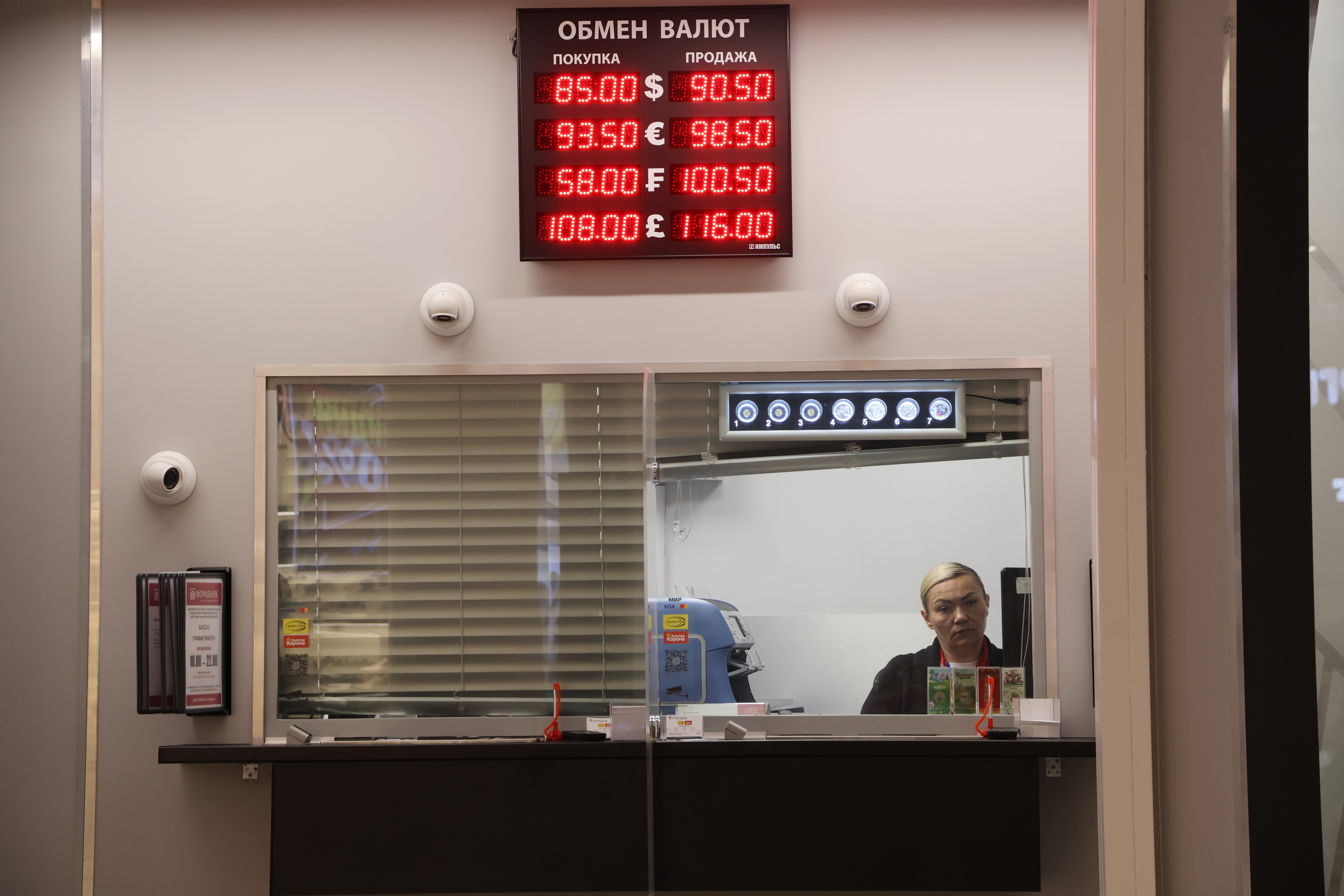Russians withdrew 100 billion rubles (approximately $1.1 billion) from banks during last month’s failed mutiny by the Wagner Group of mercenaries, according to numbers released by Russia’s Central Bank.
The bank’s monthly monetary policy report released on Tuesday showed 100 billion rubles were taken out on June 23-25, which was the rough timeline of the rebellion launched by Wagner boss Yevgeny Prigozhin, The Moscow Times reported.
On June 23, Prigozhin claimed Russia’s military had killed about 30 of his troops in a missile strike, and he ordered his men to march on Moscow. The rebellion ended the following day after peace was reportedly brokered by Belarusian President Alexander Lukashenko.
Despite the quick resolution, the incident has been called by some observers the most serious challenge yet to Russian President Vladimir Putin’s power.
Getty
Russian business news outlet RBC reported that the money withdrawal during the Wagner mutiny “was the most noticeable surge in demand for cash” since the country announced in September 2022 a partial mobilization of its military for the war in Ukraine.
Russia’s Central Bank reported that 500 billion rubles (about $5.5 billion) were withdrawn from the nation’s banks during the entire month of June, and its figures show that one-fifth of that amount occurred during the June 23-25 timeline of the rebellion.
The Central Bank said such increases in cash circulation do not influence its monetary policies, according to RBC.
Newsweek reached out to the Russian Ministry of Foreign Affairs and Russia’s Central Bank via email for comment.
The Wagner Group’s mutiny was blamed by many economists as a partial cause for the ruble hitting a 15-month low last week when it traded at 93 against the dollar on July 6.
The ruble’s value has been lower since the beginning of Putin’s invasion of Ukraine in February 2022. Anatoly Aksakov, a member of Russia’s lower house of parliament, said last week that the ruble’s recent plunge was partially caused by funds being provided to regions of Ukraine that were illegally annexed by Putin last fall.
Economist and professor at Moscow’s Higher School of Economics, Evgeny Kogan said on Twitter that the ruble continues to struggle due to Wagner’s uprising occurring while market concerns were ongoing about its value, The Moscow Times reported.
But Kogan also agreed with recent comments made by Central Bank Governor Elvira Nabiullina, who blamed the ruble’s recent troubles on falling proceeds from Russia’s exports.
“Yes, part of the devaluation is now due to domestic shocks. But there is also a fundamental reason—low exports,” Kogan tweeted on July 5.

















Discussion about this post